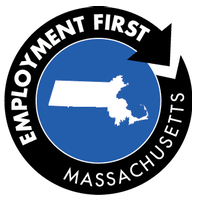Supporting Workers with Developmental Disabilities: The Employment Specialist Perspective
The partnership between Employment Specialists and job seekers with developmental disabilities is at the core of quality employment services. The primary role of an Employment Specialist is to support individuals with developmental disabilities in seeking, securing,and maintaining employment. Employment Specialists meet with job seekers in their communities to learn about their interests and skills, build rapport, and discuss career goals.
“When we help somebody find a job, we often also are teachers; we help with job coaching and training as that person transitions into a job and learns their job tasks. We are advocates for these individuals and help them advocate for themselves.” Jill Eastman, ICI Employment Services Program Coordinator
Although Employment Specialists assist job seekers in preparing for work, this partnership is about more than just getting a job: Employment Specialists and employees with disabilities work together to support and foster workplace inclusion. Employment Specialists collaborate with individuals with disabilities to develop social skills, get involved in work activities and events, and advocate for accommodations, promotions, and more. Importantly, Employment Specialists work with the employees to examine the workplace culture – do staff eat lunch together at the office? Do employees go out after work? Do different staff in the office take turns making coffee in the morning?
“I think it’s important for the new employee and Employment Specialist to really take inventory of what the workplace culture is like, to see where the new employee might want to fit into that.”-Jill
In this recorded interview, Jill Eastman, Employment Services Program Coordinator at the Institute for Community Inclusion (ICI), explains the Employment Specialist/job seeker relationship, and provides some examples of how employees with developmental disabilities take the lead in this partnership to improve workplace inclusion. Jill discusses the importance of building rapport, following the job-seekers’ lead, understanding workplace culture, and connecting with families and other natural supports as a resource.
“Families can be really great supports outside of the workplace. It’s important to collaborate with families, invite them to meetings, ask for their support through the entire process.”- Jill
INTERVIEW: The Employment Specialist Perspective
To hear more about employment services from the perspectives of self-advocates, view our archived webinar, The Truth Comes from Us: What Employment Supports to Self-Advocates Want and Need? In this webinar, they discussed a paper published earlier this year by self-advocates from the organization, Self-Advocates Becoming Empowered (SABE), which works toward the full inclusion of people with developmental disabilities in our communities. That paper was titled, “The Truth Comes from Us: Supporting Workers with Developmental Disabilities”.
